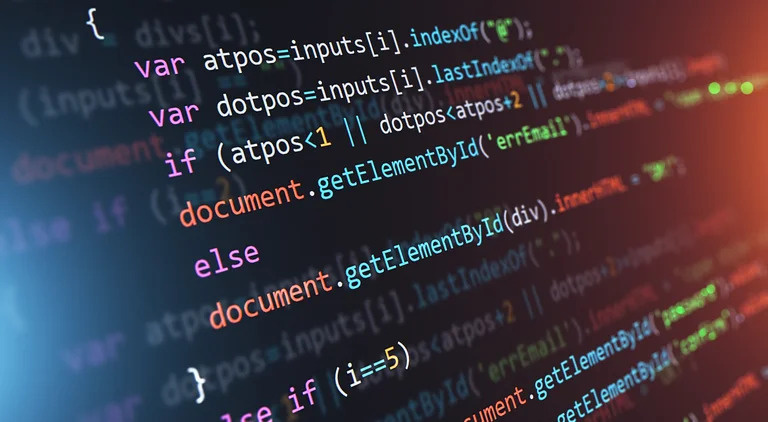Learning programming often evokes the same exciting feeling as discovering new countries and continents long ago or exploring new planets in space today. But while space exploration is a narrow specialty for few professionals, entering the world of programming is the key to unlocking endless possibilities for all of us, and brings with it not only the ability to create software but also a new way of thinking and approaching problem-solving. Whether you haven't touched the world of code at all yet, or you're already a beginner on the cusp of a great adventure, this article will introduce you to the reasons why you might be interested in programming and what pitfalls to avoid along the way.
Newcomers to the IT world face several pitfalls that can make it difficult for them to enter the industry. A lack of thought about what, why, and how we do things, combined with a frequent neglect of the basics and a hasty jump to complex concepts, can lead to confusion and frustration. But programming requires patience and time. Many people give up quickly if they don't understand everything immediately, instead of taking the time to learn and accepting mistakes as a very natural part of the learning process. Perhaps as a result of previous negative experiences during their school years, many people are afraid to make mistakes, thus hindering the development of their skills. Let's take a look at the typical mistakes made when learning programming and how to overcome them so that you can enter this fascinating world with enthusiasm, and keep the desire to explore many years later.
1. Set goals
Before you start studying programming, set clear goals. Even Michelangelo believed that "The greater danger for most of us lies not in setting our aim too high and falling short; but in setting our aim too low, and achieving our mark." Do you want to be a web or mobile developer, a data scientist, or specialise in artificial intelligence? Do you want to broaden your horizons, navigate the IT world, and exercise your brain? Does it seem like you do a lot of repetitive tasks at work and want to learn what is and isn't possible to automate (and how complex it would be)? Programming will give you a better understanding of how computers and software work, technology trends, and cyber security. It can also increase your ability to communicate and work effectively with technology-oriented people and organisations. To embark on your journey, ensure clarity regarding your objectives and tailor your learning plan accordingly from the outset.

2. Solve problems more efficiently
"Learning to write programs stretches your mind, and helps you think better, creates a way of thinking about things that I think is helpful in all domains." explains Bill Gates. Programming is often compared to solving puzzles or riddles and helps you to solve complex problems efficiently in a systematic way. To write efficient code, we need to define the exact process by which a computer will perform a certain task. This requires logical reasoning, which can be put to great use when automating repetitive tasks, for example. The goal is to gain more time for more creative tasks and to avoid errors caused by human inattention. Nowadays, various low-code solutions that allow non-programmers to improve work processes are popular. But the problem is that many people don't even think that something could be improved, or they don't know how to approach and think about the solution, and then even the best low-code tools can't help them. So as you can see, the ability to think logically can be applied not only when writing code, but also when solving problems in work or personal life.
3. Develop your career with a long-term vision
Learning to code can make a significant contribution to your career, even if you don't intend to become a professional programmer. This skill is increasingly valued in many industries and has a long-term impact on your professional growth. The ability to effectively solve problems and suggest process improvements are skills that have high value in
many sectors. You could be a doctor who invents software to improve diagnostics, a salesperson who creates analytics tools for better decision-making, or a marketer who automates digital content creation processes. Stephen Hawking summed it up nicely, "Whether you want to uncover the secrets of the universe, or just want to pursue a career in the 21st century, basic computer programming is an essential skill to learn." Invest in your development, be part of technological innovation and maybe even (co)create new products that can change the world.
4. Give order to your teaching
The advantage of programming is that you can learn anywhere, anytime, as long as you have access to a computer. On the one hand, this is great, but on the other hand, it can be a trap. Anytime often means rarely because nothing is forcing you. Study regularly! If possible, set aside a day or at least a few hours a week for studying. Create simple projects, solve problems, and gradually increase the level of difficulty. Learning programming is a marathon, not a sprint, so don't expect results in a few days. Some novice developers give up quickly when they encounter difficulties. Others try to jump between different languages and concepts, which can lead to confusion. Many beginners try to move too quickly to complex concepts without firmly establishing the basics. All of this leads to a lack of understanding and frustration. It is important to remember that programming can be challenging, but with perseverance, most obstacles can be overcome step by step.

5. Start with a popular language
Start with a popular programming language like JavaScript or Python, which are suitable for beginners. First, you'll learn the basics - language syntax, variables, operations, conditions, loops, and functions. These basics are essential for any programmer, no matter which area of IT you're interested in. And why is it important if a language is popular? Widely used languages will have easy-to-follow answers to all the problems you might face as a beginner because tens of thousands of people have solved them before you. For less popular languages, it may take you longer, or the resources may not be up to date. For beginners, it is beneficial to have plenty of quality resources to guide you through the basics of programming. Feel free to try a free programming basics class at one of our workshops or webinars.
6. Don't be passive
How to learn to program? By programming! This advice may sound obvious, but many programming students fall into the trap of watching endless loops of YouTube tutorials or reading books on programming, where they get a false sense of understanding the topic. However, it's similar to thinking you can learn how to serve by watching videos of Roger Federer playing tennis. It may guide you or inspire you, but when you go on the court, you still won't know how to serve at all. Likewise, when learning programming, the key to success does not lie in passively consuming information. Feel free to watch tutorials as a supplement to your studies, but don't expect real progress to come any differently than by wracking your brain, writing, and re-writing.
7. AI - yes, but...
Maybe you've already started programming, the first few exercises were easy, but suddenly you don't know how to proceed. What now? Sure, I’ll ask ChatGPT and I'm done! Let's take a look at how being dependent too much on copying code (whether through the latest AI tools or classically from Stack Overflow or Google) instead of trying to understand and experiment on your own can hinder your growth. Many beginners begin to rely on the copy-paste method to solve problems they don't know how to solve, and they copy-paste various lengths of code into their projects without understanding the code themselves. Feel free to approach AI tools as mentors (as long as you accept that they can sometimes lead you astray with misinformation).
However, over-reliance on AI instruments is similar to wanting to learn to sing by singing something, then Taylor Swift sings the rest of the song and you somehow mix it up. Does that make you able to sing like Taylor? Equivalently, AI tools can guide you to the right solution, but you then have to at least reverse-engineer what's going on in that piece of code and why.

8. Become part of the community
Programming gets you involved in a large global community of developers where you can share knowledge and learn from others. And it doesn't matter if you're a die-hard introvert, because many communities and discussion forums are purely online. There are also many physical or online events, workshops, and conferences for programmers where you can not only learn but also meet like-minded people. Within the community around Coding Bootcamp Praha, we realized that a community can be also useful for something else than sharing experiences, namely creating role models for others. Often at the beginning of a coding journey, the explorer can encounter the "imposter syndrome", or the feeling that they are deluding themselves that they could ever belong in IT. But when you see the same people - who, just a few months or years ago, were doing a completely different job and are now either programmers or in other IT roles - it's much easier to believe that there is a light at the end of the tunnel!
Getting started in programming can be an exciting adventure that opens up many new mental and career horizons. Whether you want to become a professional programmer or simply improve your skills, programming can be beneficial for anyone who wants to exercise their brain and explore the possibilities of the digital world to solve everyday problems. If you're at the beginning of this journey, set realistic goals, learn regularly and actively experiment. But it's also important not to expect miracles overnight, to be patient and prepared for the fact that only with effort and determination can success be achieved. And what is the best advice in the end? Don't wait and get started! As Mark Twain said, "The secret of getting ahead is getting started"!